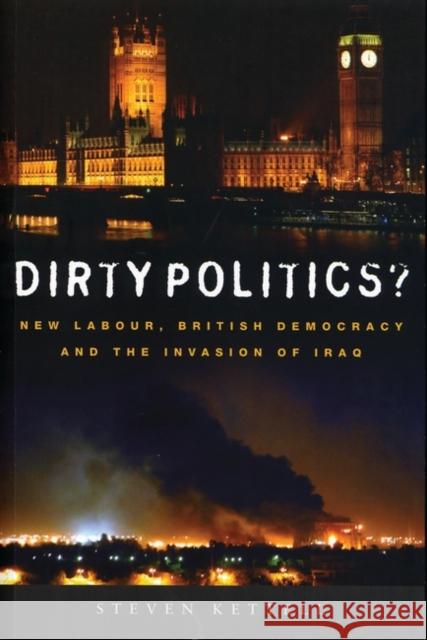Dirty Politics?: New Labour, British Democracy and the Invasion of Iraq » książka
Dirty Politics?: New Labour, British Democracy and the Invasion of Iraq
ISBN-13: 9781842777411 / Angielski / Miękka / 2006 / 224 str.
'Thoroughly researched, this is the best book yet on how the disastrous decisions were taken to support Bush's war on Iraq, and how the politicians tried in vain to cope with the collapse in public confidence afterwards.' Dr Glen Rangwala, University of Cambridge
'Steven Kettell's claim is stark: that unlike the majority of his electorate, Tony Blair was committed to regime change in Iraq well before 9/11, and welcomed the invasion as a way of enhancing Britain's global role. If true, this claim underscores the importance of another: that all this was possible only because of the centralised, hierarchical and elitist nature of a British political system in need of total participatory overhaul. Controversial and provocative, this book adds an important new dimension to the contemporary debate on UK politics, and deserves to be widely read.' - David Coates, Worrell Professor of Anglo-American Studies, Wake Forest University, North Carolina
'This book provides a clear and accurate account of how Tony Blair and his entourage got Britain into Iraq. I agree with Kettell's argument that this was only possible because of the undemocratic and elitist nature of the British state.' The Rt Hon Clare Short MP
'Comprehensive, readable and intelligent' - John Kampfner, Editor of The New Statesman
'A persuasive and important contribution to the debate on the biggest question mark of the Blair premiership.' - Dr Anthony Seldon, Brighton College
'This important book not only effectively counters the myths surrounding British policy towards Iraq, it also reveals the elitist and centralised nature of the political system and foreign policy-making more generally. It is a must-read for anyone entertaining the notion that our system is democratic or that foreign policy is made in the public interest.' - Mark Curtis, Author of Unpeople: Britain's Secret Human Rights Abuses', Vintage, 2004
'Provides an excellent account of the Blair government's strategies for the political management of the democratic process from the decision to go to war in Iraq through to the London bombings of 7 July 2005...will be read profitably by those seeking a well-constructed critical account of contemporary events.' - Political Studies Review











